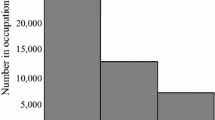Abstract
Tax compliance is a field that crosses over several research areas, from economics to machine learning, from sociology to artificial intelligence and multi-agent systems. The core of the problem is that the standing general theories cannot even explain why people comply as much as they do, much less make predictions or support prescriptions for the public entities. The compliance decision is a challenge posed to rational choice theory, and one that defies the current choice mechanisms in multi-agent systems. The key idea of this project is that by considering rationally-heterogeneous agents immersed in a highly social environment we can get hold of a better grasp of what is really involved in the individual decisions. Moreover, we aim at understanding how those decisions determine tendencies for the behaviour of the whole society, and how in turn those tendencies influence individual behaviour. This paper presents the results of some exploratory simulations carried out to uncover regularities, correlations and trends in the models that represent first and then expand the standard theories on the field. We conclude that forces like social imitation and local neighbourhood enforcement and reputation are far more important than individual perception of expected utility maximising, in what respects compliance decisions.
Access this chapter
Tax calculation will be finalised at checkout
Purchases are for personal use only
Preview
Unable to display preview. Download preview PDF.
Similar content being viewed by others
References
Allingham, M.G., Sandmo, A.: Income tax evasion: A theoretical analysis. Journal of Public Economics 1(3/4), 323–338 (1972)
Andreoni, J., Erard, B., Feinstein, J.: Tax compliance. Journal of Economic Literature 36(2) (1998)
Antunes, L., Balsa, J., Moniz, L., Urbano, P., Palma, C.R.: Tax compliance in a simulated heterogeneous multi-agent society. In: Sichman, J.S., Antunes, L. (eds.) MABS 2005. LNCS (LNAI), vol. 3891, Springer, Heidelberg (2006)
Antunes, L., Coelho, H.: On how to conduct experiments with self-motivated agents. In: Lindemann, G., Moldt, D., Paolucci, M. (eds.) RASTA 2002. LNCS (LNAI), vol. 2934, Springer, Heidelberg (2004)
Antunes, L., Coelho, H., Balsa, J., Respício, A.: e*plore v.0: Principia for strategic exploration of social simulation experiments design space. In: Proceedings of The First World Congress on Social Simulation, Kyoto, Japan (2006)
Antunes, L., Del Gaudio, R., Conte, R.: Towards a gendered-based agent model. In: Proceedings of Agent 2004 Conference on Social Dynamics: Interaction, Reflexivity and Emergence, Chicago, USA (2004)
Balsa, J., Antunes, L., Respício, A., Coelho, H.: Autonomous inspectors in tax compliance simulation. In: Proceedings of the 18th European Meeting on Cybernetics and Systems Research (2006)
Boadway, R., Marceau, N., Mongrain, S.: Tax evasion and trust. Technical Report 104, Center for Research on Economic Fluctuations and Employment, Université du Québec à Montréal (February 2000)
Castelfranchi, C.: Guarantees for autonomy in cognitive agent architecture. In: Wooldridge, M.J., Jennings, N.R. (eds.) Intelligent Agents. LNCS, vol. 890, Springer, Heidelberg (1995)
Conte, R., Gilbert, N.: Introduction: computer simulation for social theory. In: Gilbert, N., Conte, R. (eds.) Artificial Societies: the computer simulation of social life, UCL Press, London, UK (1995)
Gilbert, N.: Models, processes and algorithms: Towards a simulation toolkit. In: Suleiman, R., Troitzsch, K.G., Gilbert, N. (eds.) Tools and Techniques for Social Science Simulation, Physica-Verlag, Heidelberg (2000)
Gilbert, N., Doran, J. (eds.): Simulating Societies: the computer simulation of social phenomena. In: Proceedings of SimSoc 1992. UCL Press, London (1992)
Gilbert, N., Doran, J. (eds.): Simulating Societies: the computer simulation of social phenomena. UCL Press, London (1994)
Hewitt, C.: Viewing control as patterns of passing messages. Artificial Intelligence 8 (1977)
Hewitt, C.: The challenge of open systems. Byte (April 1985)
Kaplan, F.: The emergence of a lexicon in a population of autonomous agents (in French). PhD thesis, Université de Paris 6 (2000)
Myles, G.D., Naylor, R.A.: A model of tax evasion with group conformity and social customs. European Journal of Political Economy 12(1), 49–66 (1996), http://ideas.repec.org/a/eee/poleco/v12y1996i1p49-66.html.
Simon, H.: Rationality in psychology and economics. In: Hogarth, R.M., Reder, M.W. (eds.) Rational choice: the Contrast Between Economics and Psychology, Univ. of Chicago Press (1987)
Urbano, P.: Decentralised Consensus Games (in Portuguese). PhD thesis, Faculdade de Ciências da Universidade de Lisboa (2004)
Wintrobe, R.: K. Gërxhani. Tax evasion and trust: a comparative analysis. In: Proceedings of the Annual Meeting of the European Public Choice Society – EPCS 2004 (2004)
Author information
Authors and Affiliations
Editor information
Rights and permissions
Copyright information
© 2007 Springer-Verlag Berlin Heidelberg
About this paper
Cite this paper
Antunes, L., Balsa, J., Respício, A., Coelho, H. (2007). Tactical Exploration of Tax Compliance Decisions in Multi-agent Based Simulation. In: Antunes, L., Takadama, K. (eds) Multi-Agent-Based Simulation VII. MABS 2006. Lecture Notes in Computer Science(), vol 4442. Springer, Berlin, Heidelberg. https://doi.org/10.1007/978-3-540-76539-4_7
Download citation
DOI: https://doi.org/10.1007/978-3-540-76539-4_7
Publisher Name: Springer, Berlin, Heidelberg
Print ISBN: 978-3-540-76536-3
Online ISBN: 978-3-540-76539-4
eBook Packages: Computer ScienceComputer Science (R0)





